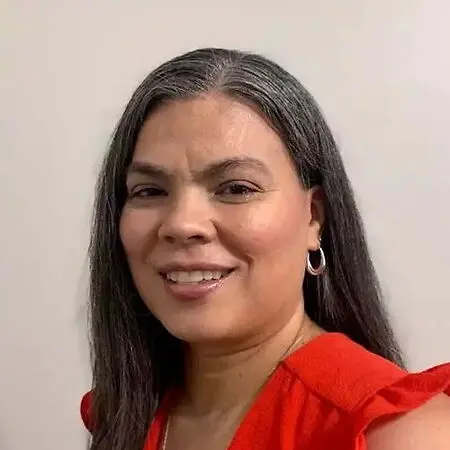Sharon Cuba Rodriguez

Dr. Sharon Cuba Rodriguez is a dedicated School Social Worker and educator with over 15 years of experience in the fields of mental health, education, and community service. She holds a Ph.D. in Social Work from Walden University and has built a career focused on supporting students with disabilities, advancing HIV/AIDS education and prevention, and empowering marginalized communities through advocacy and direct service. Her expertise spans crisis intervention, nonprofit leadership, anger management, and conflict resolution.
Throughout her career, Dr. Rodriguez has played an active role in addressing community needs—especially during the COVID-19 pandemic, when she organized food, mask, and sanitizer distribution and spearheaded neighborhood clean-up efforts. She also helped coordinate school supply giveaways for students. As an adjunct professor, she has taught graduate-level courses on trauma, psychopathology, research, policy, human behavior, multiculturalism, and international social work.
In addition to teaching and direct practice, Dr. Rodriguez is a sought-after presenter on topics such as urban school social work, intimate partner violence in Puerto Rican communities, self-care, and cultural diversity. A first-generation scholar, she brings a deep sense of purpose and resilience to her work, continually turning her lived experiences into opportunities to serve, lead, and inspire.
• Confronting Bias: Thriving Across Our Differences
• Supervisor
• Walden University
• Ashworth College
• Rutgers University
• NASW
• NOHS
• SSWA
• Parent Liaison
• Social Work Intern Supervisor
• Toy distribution
What do you attribute your success to?
I attribute my success to perseverance and the joy of seeing others succeed. Nothing fulfills me more than former students returning to share how they've built businesses, become independent, or achieved things they once thought impossible. One piece of advice that’s stuck with me came from a high school counselor—though not in the way she intended. She told me not to bother applying to college because it "wasn't for me." I ignored that, pursued my education, and years later proudly told her I had earned my doctorate. That moment reminded me to never let someone else define your potential.
What’s the best career advice you’ve ever received?
Someone close to me once told me:
Believing in your abilities is the first step to making real impact-so start your journey!
What advice would you give to young women entering your industry?
“Own your voice, protect your energy, and never underestimate your power.”
Social work is a deeply rewarding field, but it can also challenge your confidence—especially as a young woman navigating systems that often undervalue both youth and femininity. I would include to anyone entering the profession to trust their instincts, speak up, and set strong boundaries—personally and professionally. You have to take of yourself first before caring for others, but you won’t always be taught how to care for yourself. Learn to say no without guilt. Burnout is not proof of commitment—balance is. Surround yourself with strong women who will challenge and support you. Learn from their mistakes, their resilience, and their boundaries. But always stay true to who you are.
What are the biggest challenges or opportunities in your field right now?
One of the biggest challenges in my field right now is the growing inequity in education, especially for marginalized communities. The current political climate has led to a lack of funding and resources for schools serving predominantly minority populations, creating a stark contrast compared to their white counterparts. This gap in support not only impacts educational outcomes but also reinforces systemic barriers that many students are already facing. Addressing these disparities is critical to creating a more equitable and effective education system.
What values are most important to you in your work and personal life?
The values that guide me in both my work and personal life are advocacy, resilience, and a deep commitment to equity. I’ve always stood up for those on the sidelines—whether friends, classmates, or community members—because I know firsthand what it means to be overlooked by systems that are supposed to support us. As a first-generation college student who went on to earn my undergraduate, master’s, and Ph.D., I’ve turned personal and generational pain into purpose. I remain a lifelong learner, driven by the belief that resilience is not just survival—it's the fire that fuels meaningful change.